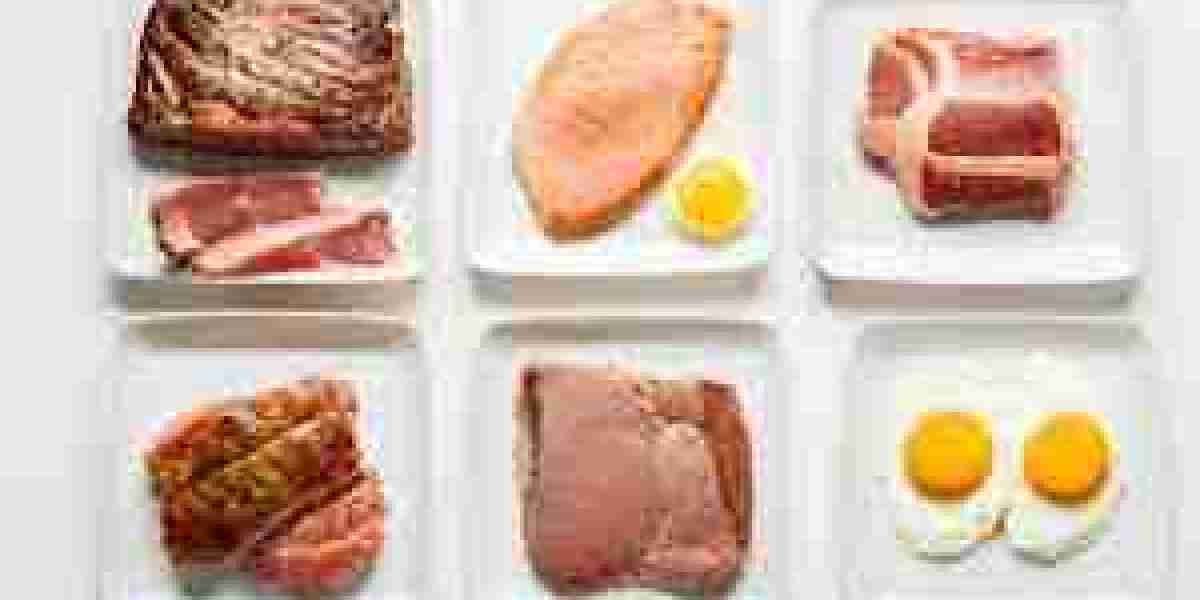The carnivore diet is an extreme eating plan that focuses exclusively on animal-based foods, eliminating all plant-based foods. As the name suggests, this diet is centered around meat, fish, eggs, and other animal products. It is considered a form of zero-carb eating, where the goal is to consume virtually no carbohydrates and instead rely on fats and proteins as the primary sources of energy.
what is carnivore diet?The carnivore diet has gained popularity in recent years, with proponents claiming that it can lead to weight loss, improved mental clarity, and enhanced overall health. However, due to its highly restrictive nature, the diet has also sparked controversy and skepticism among health professionals. This article will provide an overview of the carnivore diet, its origins, and its potential benefits and drawbacks.
Key Components of the Carnivore Diet
The carnivore diet is simple and focuses on animal-derived foods. The primary foods allowed on the diet include:
- Meat: This includes beef, pork, lamb, chicken, turkey, and other types of meat. It can be consumed in various forms, such as steaks, roasts, ground meat, and processed meats like sausages (with minimal additives).
- Fish and seafood: Salmon, sardines, tuna, mackerel, shrimp, and other seafood options.
- Eggs: Chicken, duck, and other types of eggs are encouraged.
- Animal fats: Butter, ghee, lard, tallow, and other fats used for cooking or added to meals.
- Optional dairy: Some versions of the carnivore diet allow for full-fat dairy products like cheese, heavy cream, and yogurt, although many strict adherents avoid dairy due to concerns about lactose and inflammation.
How the Carnivore Diet Works
The carnivore diet works by eliminating all plant-based foods, which means that you’re cutting out carbohydrates entirely. As a result, the body enters a state of ketosis, where it burns fat for energy instead of relying on glucose from carbohydrates. The lack of carbohydrates helps control insulin levels, leading to fat loss and stabilization of blood sugar levels.
Since the diet is high in protein and fat, it provides ample energy without the need for carbohydrates. Many people report feeling more satisfied and full, leading to a natural reduction in calorie intake.
Origins of the Carnivore Diet
The carnivore diet is often associated with ancestral eating patterns, where early humans primarily ate animal products due to their availability and nutritional density. It shares similarities with the paleo diet but takes the concept to the extreme by completely excluding all plant-based foods.
While the carnivore diet has been around for centuries in various forms, it gained significant attention in recent years through proponents like Dr. Shawn Baker, a physician who has become a vocal advocate for the diet. His experiences, as well as those of other followers, have sparked interest in the diet’s potential health benefits.
Potential Benefits of the Carnivore Diet
Weight Loss: One of the most common reasons people try the carnivore diet is to lose weight. By cutting out carbs, the body enters ketosis, which helps burn fat for energy. Many people experience a reduction in appetite, making it easier to eat fewer calories and shed excess weight.
Improved Mental Clarity: Many individuals who follow the carnivore diet report enhanced mental focus and clarity. This is thought to be due to the brain’s use of ketones (from fat) as a more stable energy source than glucose, which can lead to more consistent cognitive function throughout the day.
Stable Blood Sugar: The carnivore diet stabilizes blood sugar levels by eliminating carbohydrates, which cause fluctuations in insulin and glucose levels. This can be especially beneficial for people with insulin resistance or type 2 diabetes.
Reduced Inflammation: Some people claim that the carnivore diet helps reduce chronic inflammation, particularly in the joints and digestive system. By eliminating plant-based foods, which some individuals may be sensitive to, the diet may reduce overall inflammation in the body.
Simplicity and Satiety: The diet is straightforward and easy to follow, as it eliminates the need to track macronutrients or count calories. Many people feel full and satisfied after meals, reducing the likelihood of overeating.
Potential Drawbacks and Concerns
Nutrient Deficiencies: One of the most significant drawbacks of the carnivore diet is the potential for nutrient deficiencies, especially in vitamins and minerals that are found primarily in plants, such as vitamin C, fiber, and folate. Organ meats can help provide some of these nutrients, but supplementation may be necessary for long-term adherence.
Digestive Issues: Because the carnivore diet eliminates fiber from the diet, some individuals may experience digestive discomfort, including constipation or bloating. Adequate fat intake and hydration can help reduce these symptoms.
Heart Health Concerns: The high intake of saturated fats on the carnivore diet may raise concerns for heart health, particularly for individuals with a history of cardiovascular disease or high cholesterol. While some research suggests that saturated fats may not be as harmful as once believed, individuals with pre-existing heart conditions should consult with a healthcare provider before starting the diet.
Social and Lifestyle Challenges: The restrictive nature of the carnivore diet can make it difficult to follow in social settings or when dining out. Most restaurants offer few options for those on the carnivore diet, and social events may present challenges when it comes to food choices.
Is the Carnivore Diet Right for You?
The carnivore diet is not for everyone, and its extreme nature means it should be approached with caution. While it can be beneficial for certain health goals, such as weight loss or managing insulin resistance, it may not be suitable for long-term use due to the risk of nutrient imbalances. People with a history of heart disease, kidney problems, or digestive issues should consult with a healthcare professional before attempting the diet.
If you’re considering trying the carnivore diet, it’s important to monitor your health regularly and ensure that you’re meeting your nutritional needs. While the diet can lead to significant benefits for some individuals, others may find it difficult to sustain or experience negative side effects.
Conclusion
The carnivore diet is a high-protein, high-fat eating plan that eliminates all plant-based foods. It’s designed to provide energy through animal products, encouraging fat loss, stable blood sugar, and mental clarity. While the diet offers a range of potential benefits, including weight loss and reduced inflammation, it comes with concerns regarding nutrient deficiencies and long-term sustainability. As with any restrictive diet, it’s crucial to evaluate its potential impact on your health and consult with a healthcare provider before starting.






